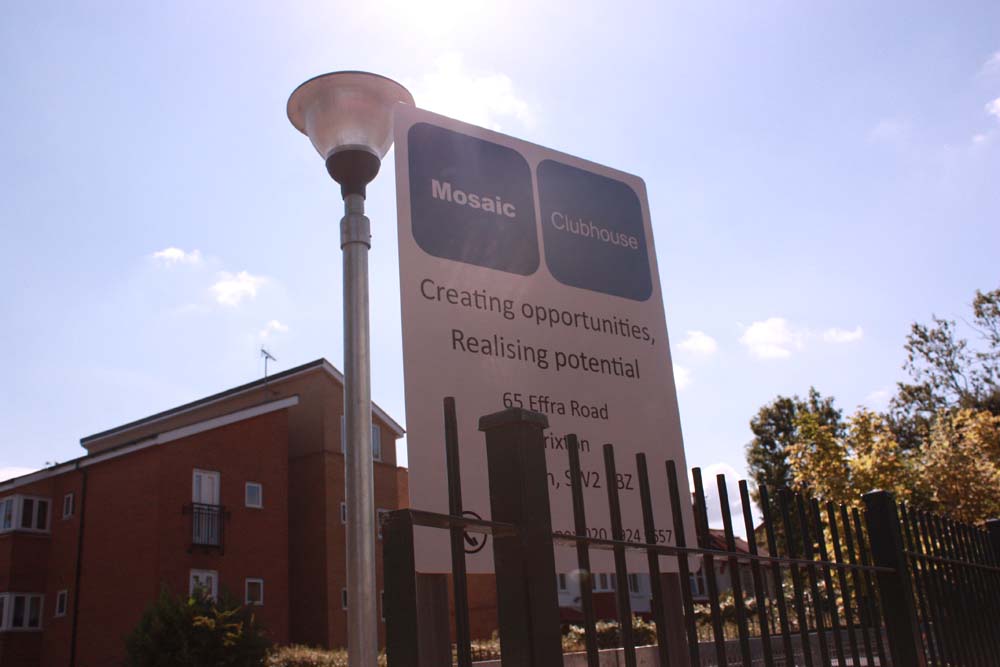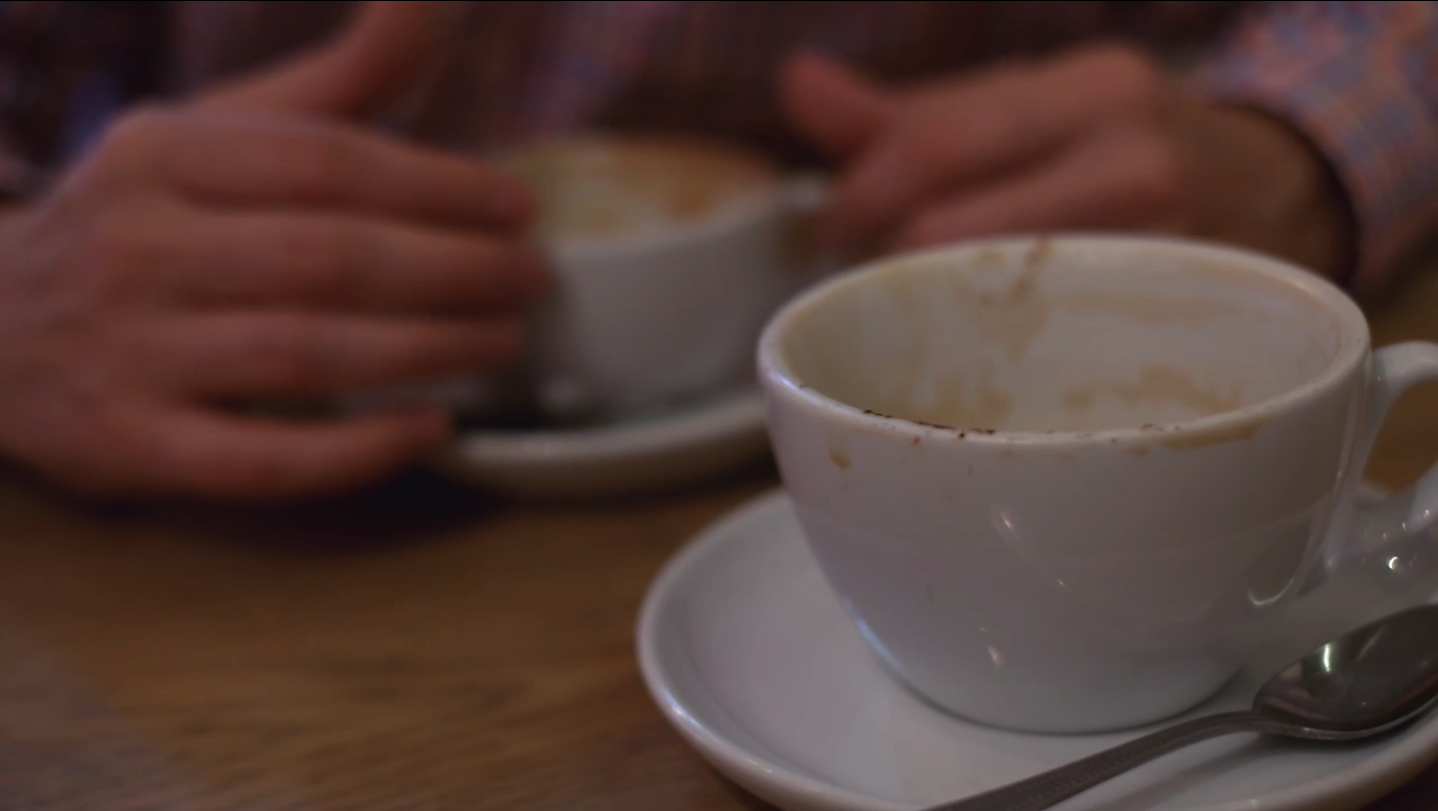“The level of support I am giving is the same level of support I received as a peer supporter and this has helped a lot with my recovery.”
“What I’m doing for me, I’m continuing with a title, says Patrick Nyikavaranda, Co-ordinator of Solidarity in a Crisis, demonstrating the reciprocal value of peer support. This out of hours project, along with Missing Link and Connecting Communities are the flagship peer support initiatives from the Living Well Collaborative (the Collaborative).
Outside of these, the inspirational peer to peer work at Mosaic Clubhouse (as hosts at the Living Well Partnership) is motivating and giving people a purpose in life. (click here to read Linda’s story)

The Collaborative has developed the Peer Support Framework to support its vision to make peer support “part of our DNA”… to grow and develop peer support so that it becomes possible for anyone using mental health services to offer to help others, or to ask for help from another person with lived experience, ” says Nicholas Campbell-Watts, Director of Mental Health, Certitude.
This comes at a critical time as welfare reforms, ATOS and the ‘bedroom tax’ further disenfranchise those already made vulnerable by the damaging impact of social inequalities.
Learning from experience
An extensive range of learning is emerging from an evaluation of peer and vocational support, which is helping to forge an innovative pilot project. “We found the extent of personal and social invalidation reflected the extent of the distress, ” says Mark Bertram. “The good news is that with the right conditions people can find their own way through, turn their lives around and improve mental health, well being and quality of life.”
Lambeth and Southwark Mind co-produces Self- Management courses (mixed group, women’s group & BME group, in partnership with the Mental Health Foundation), as well as the fortnightly Peer Support Group, where lunch in a local cafe is much valued. -For more information contact peersupport@lambethandsouthwarkmind.org.uk
As a group member reflects: “I have been to many groups before only here have I found I can talk openly without fear of judgement.”
The Collaborative vision to tap into the “huge potential of service users and carers” is timely… their stories are testament to the value of lived experience. As one mother so poignantly captured of her carers’ meetings:
“The people who attend the group have become important because they are living with the realities of getting through each day with mental illness, not the headline grabbing sort, but the humdrum day to day sort and I realised that I had support when I felt no-one could help.”
Solidarity in a Crisis, which also supports carers has seen its number of referrals increasing. “There’s few people who can say ‘I saved someone’s life today’, ” says Patrick of his team of 8. “Several of our peer supporters by being empathetic and listening have been able to support someone who was talking about taking their own life.”
Hamza talks of peer support as his “calling” and describes the “seismic internal change in myself” and seeing “the light come on in others that I’ve encouraged”.
Missing Link’s peer supporters have reached more then 1,300 service users, both formally and informally as they meet with people on wards and in the community after their transition from hospital. A peer supporter describes how a client called him when he was relapsing into psychosis
” I asked him why he called me and why he didn’t call the CPN and he basically said again because it’s too clinical.”
Co-ordinator Lucas Teague believes in people’s ability to change and reform their lives and is inspired by his team’s achievements. “They work with difficult situations and complex people and the success reaffirms the quality of lived experience. There’s rarely an emergency because of the high regard given to making people feel supported and this enables them to feel autonomous in making decisions in their work.”
Such is its success another Missing Link cohort has gone through the eight-week training and peer supporters have started working with the Community Options (COT) and Primary Care Support Service (Pass) teams as people face the uncertain transition from their community mental health teams to their GP.
Some people aren’t ready for the level of engagement it takes to be part of a formal peer support project: “What’s required is that leap of faith… for some it’s the first time that their lived experience has been seen as a quality and that can be a real revelation to people, ” adds Lucas.
The intent to grow more informal peer support networks to build community resilience remains a Collaborative aspiration. Timebanking and Community Connecting go some way to address the isolation people face.
Community Connecting (Certitude) encourages people at risk to connect with others around shared interests, to grow their confidence in trying new things and meeting new people. It’s online platform, Connect and Do, www.connectanddo.org.uk helps people map where they are and plan how they move forward and share their experiences.
“I was housebound most of the time due to mental health needs, but my coach helped me to find a knitting group in my local area and attend the group every week, ” says Alice. “I met new people there and made friends. My friends are teaching me new stitches and crochet techniques. I find knitting is very peaceful and relaxing, taking my mind off from all the worries.”
Timebanking is another way that peer support can be embraced. For every one hour you spend helping someone you will earn 1 Time Credit. Everyone’s time is valued equally so you give an hour and you get an hour back.
“Time Bank is not about saving money,” stresses Elisee Silcott, Timebank Broker with Southwest Lambeth (a partnership with the Collaborative).”You have to be prepared to give something back.” Elisee links in with people at the local Hetherington Group Practice and, with her other hat on as Employment and Training Officer she is able to reach residents at her base at Riverside in Acre Lane, Brixton.
“I joined Timebank at a time in my life when I was not doing anything,” says 19-year-old Duane. “My mental ill health I felt was holding me back from engaging and I was in and out of trouble, until my keyworker advised me to join Timebank. It was fun for me as I picked up a new skill learning how to design t-shirts. At the workshop I was also encouraged to think about setting up my own business as a second option to finding a career.” For more information contact elisee.silcott@riverside.org.uk
The power of peer support rests with its simplicity. As Patrick Nyikavaranda puts it, “for the 5 people I will support in the next 5 days, between one and 3 of them will go on to support another 5 or more.”
Follow Lucy’s story in our peer support video:

